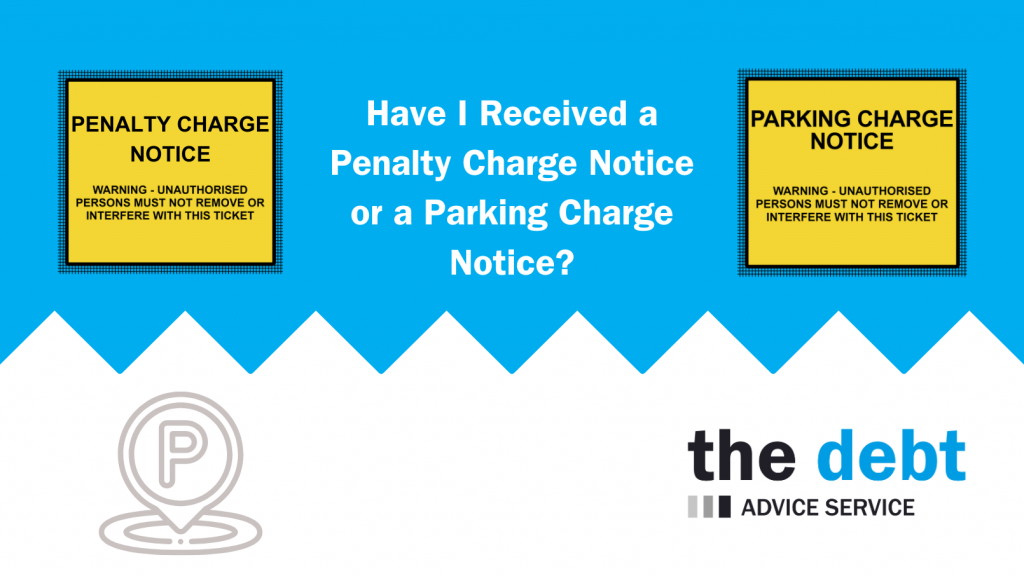If you’ve received a parking ticket, you might be wondering what your next steps are and what rights you have. One of the most important things to know is what kind of parking ticket you’ve been issued. There are two types of parking ticket; a penalty charge notice (PCN) and a parking charge notice (PCN).
Because they share the same acronym, people often get confused between the two. It’s actually thought that private parking companies named their parking ticket to make it more confusing for motorists. This is because the type of parking ticket you’ve been issued will affect the steps you can take, whether you choose to pay up, appeal, or ignore it altogether. Today we’re going to talk about the differences between the two, and how you can go about paying or appealing the parking ticket.
What’s the difference between a penalty charge notice and a parking charge notice?
The main difference between a penalty charge notice and a parking charge notice is who the ticket was issued by. Let’s explain that further:
A penalty charge notice is issued by the local council for parking infringements. These parking tickets are legally enforceable.
A parking charge notice is issued by a private parking operator for breaking parking rules in a private car park. These parking tickets aren’t legally enforceable unless they decide to take you to court for a court order.
We’ll now go through the details for each type of ticket so that you can determine what kind of ticket you’ve got, as well as what action to take in regards to your parking ticket.
How to deal with a penalty charge notice
As mentioned above, a penalty charge notice is issued to you when you’ve committed a parking contravention that’s owned by the council. This might mean that you’ve parked somewhere for longer than allowed, not paid the right parking fee, or that you’ve parked in a restricted area such as a bus stop or disabled parking space.
There are a few ways you might be issued a penalty charge notice:
- Handed to you by a parking warden employed by the council.
- Left on your vehicle.
- Through the post.
If you’ve received your penalty charge notice through the post, it means that your parking contravention was caught on CCTV or if you’ve ignored a parking warden. The council has the right to request your address from the DVLA to then send your PCN through the post. So, even if you do ignore a parking warden, you won’t have got away with the fine!
From there, you’ll have 28 days from the date on the PCN to take action. If you pay within 14 days, you’ll be offered a reduced fine. However, if you don’t believe you did anything wrong, don’t pay up just yet! If you pay, it’s an admission of guilt, and you no longer have the right to appeal. You can appeal a penalty charge notice, and we’ll go through that process shortly.
If you do decide to pay, it’s best to pay within the 14 days to save yourself some money. It’s best not to ignore a penalty charge notice, as they are legally enforceable and you could end up in court.
Can I appeal a penalty charge notice?
Yes!
You have 28 days (unless there’s extreme circumstances) to submit a formal appeall against your penalty charge notice. However, if your penalty charge notice was handed to you, you can make an informal appeal to begin with. You can do this by contacting the local council and asking them to withdraw the PCN. You’ll need to provide them with a good reason, but sometimes this is enough to have it wiped.
However, if you received your PCN through the post, you cannot make an informal appeal. You’ll need to start the process of a formal appeal, which is what’s known as a representation letter. We’ve got a free and easy to use parking ticket appeal letter template that you can use to help you create a strong appeal.
To better your chances at winning your appeal, you’ll need to make sure you:
- Have the PCN number in your appeal letter
- Your full name, address and vehicle registration
- A good reason for appealing your PCN
- Evidence to back up your appeal
Once you’ve submitted your appeal, the issuing council has 56 days to review and make a decision regarding your appeal. Keep an eye on the time that’s passed, because if they don’t respond in that time frame, you automatically win your appeal.
If you’re successful, you’ll receive a letter letting you know that the fine has been wiped. If you’re unsuccessful, you receive what’s known as a notice of rejection which will detail what steps you can take next.
What happens if my penalty charge notice appeal is rejected?
If you don’t agree with the decision of your appeal, that doesn’t mean it’s the end of the road! Your notice of rejection will have details on how you can get in tough with the General Regularory Chamber to continue with your appeal.
Should I ignore a penalty charge notice?
In short, no.
A penalty charge notice is a legally enforceable fine, so if you choose to ignore your parking ticket, you may face a court hearing. Your best option is to either pay or start an appeal against your PCN.
How to deal with a parking charge notice
A parking charge notice is issued when you break a parking rule in a car park that’s privately owned. These are often retail, restaurant, or even hospital car parks. However, unlike penalty charge notices, these kinds of parking tickets are not legally enforceable. They’re essentially an invoice given to you by the landowner or parking management company for breaking a parking rule.
You can receive a parking charge notice in a number of ways:
- Handed to you by a parking attendant
- Left on your vehicle
- Through the post
NOTE: It’s always worth checking whether the private parking company is a member of an Accredited Trade Association (ATA). This is because if they aren’t a member, they can’t legally request your details from the DVLA or anywhere else. That also means that you can probably ignore their parking ticket if you choose to!
You can easily check if a parking company is a member of an ATA by calling the International Parking Community (IPC) or the British Parking Association (BPA).
However, most private parking operators are a member of an ATA, which means they can request your details and send the parking charge notice to your home address.
Much like a penalty charge notice, you’ll have 28 days to take action on your parking charge notice. And, if you pay within 14 days, you’ll get a reduced fee on the fine too!
Can I appeal a parking charge notice?
Yes!
However, the appeals process for a parking charge notice is different to a penalty charge notice. You can only make an informal appeal with a parking charge notice. This will involve writing to the landowner or private parking operator. You can use the free parking ticket appeal template for parking charge notices too.
You’ll need to include:
- The PCN number
- Your full name, address and vehicle registration
- A good reason for appealing
- Evidence to back up your appeal
From there, the private parking operator or landowner will have 56 days to make a decision and let you know the outcome of your appeal. If you don’t hear from them after 56 days, you’ve automatically won your appeal!
What happens if my parking charge notice appeal is rejected?
If your appeal is rejected, don’t worry! If you want to appeal your case further, this is where a formal appeal comes into play. You’ll need to ask an independent tribunal to look at your case. There are two independent groups you can use:
- Independent Appeals Service (IAS)
- Parking on Private Land Appeals (POPLA)
The independent group you end up using will depend which ATA the private parking company is a member of:
- You’ll use the Independent Appeals Service (IAS) if the company is a member of the International Parking Community.
- You’ll use Parking on Private Land Appeals (POPLA) if the company is a member of the British Parking Association.
Should I ignore a parking charge notice?
In short, no.
While a parking charge notice isn’t legally enforceable, the landowner or private parking operator could choose to escalate the situation! They might choose to ask a judge for a court order, which will force you to pay the fine.
If you don’t pay that fine within a month, it could affect your credit score and be visible to creditors for six years! So, if you do end up with a court order, you’re better off paying your fine as soon as possible.
Not only that, if you don’t pay a fine ordered by the court, you could end up with bailiffs turning up at your door to recover belongings to pay the debt you owe.
However, it is important to remember that in some cases, a private parking company or landowner won’t take legal action on such a small amount of money owed. But, it might be in your best interest not to test that option. You’re better off either paying the fine or going down the appeals process.

